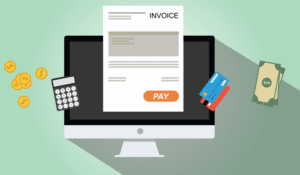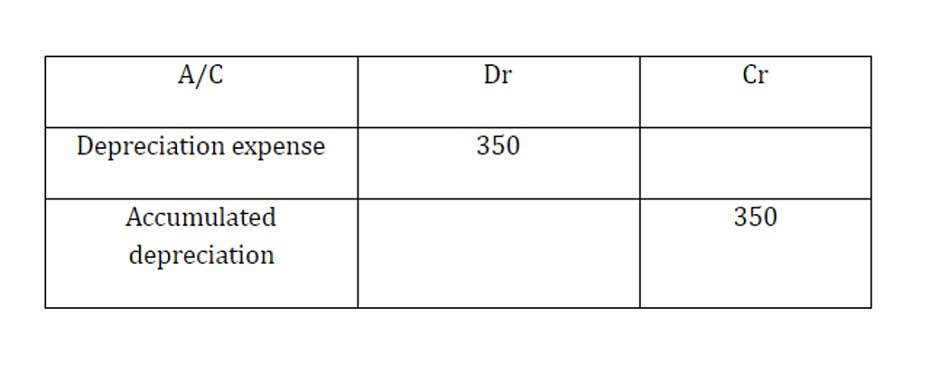
They are incurred during an accounting period regardless of the volume of goods produced or sold. The treatment of period costs within the financial records of a company is a meticulous process that ensures accurate reflection of the business’s financial performance. This accounting practice is not only a compliance measure but also provides valuable insights for internal management and external stakeholders. Interior Design Bookkeeping By recognizing the importance of period costs and understanding their characteristics, companies can enhance their financial management and make better-informed decisions. They are initially recorded as assets on the balance sheet under inventory.

Fundamentals of Accounting

Period costs are of no less help, as they allow you to understand how well you’re running your business. Looking to streamline your business financial modeling process with a prebuilt customizable template? Say goodbye to the hassle of building a financial model from scratch and get started right away with one of our premium templates. If operations are halted, the firm will not incur enabling costs; nevertheless, if operations are resumed, the firm will incur them. Some will most likely be consistent across the whole output range, while others will likely fluctuate in what are period costs steps. A single-shift operation, for example, may only require one departmental supervisor, whereas a second shift operation will necessitate the hiring of a second supervisor.
- For example, if you alter insurance premiums or even switch to a firm with lower premiums, the price difference must be reported.
- Fixed costs remain the same over a specific period, regardless of production levels, while variable costs fluctuate with the production level.
- This comprehensive budgeting ensures that all aspects of the company’s financial obligations are anticipated and accounted for, allowing for a more robust financial plan.
- The significance of period costs extends beyond mere accounting entries to become a cornerstone in shaping business tactics and financial health.
- People often confuse product and period costs due to the complexity of accounting terminology and the different ways these costs are treated in financial reporting.
Accounting for Managers
- Utilities, such as electricity, water, and heating, are also indirect costs that are used by various departments within the organization.
- This assists you in determining your expenses and provides an accurate estimate of your net income.
- Costs which are needed to produce a product are referred to as product costs, all other costs are known as period costs.
- Period costs include any costs not related to the manufacture or acquisition of your product.
- The immediate expensing of period costs has a direct impact on a company’s profit and loss statement.
- These costs are essential for a business to operate, but they don’t contribute directly to the creation of long-term assets.
- Direct Allocation is a method of assigning Period Costs directly to the specific cost object based on a clear cause-and-effect relationship.
If no direct connection to revenue can be established, the costs are recognized in the period they arise. For instance, office rent is recorded as an expense in the month it is paid, irrespective of the sales activities of that month. This treatment ensures that the financial statements accurately reflect the company’s operational costs and help in assessing its profitability during a specific accounting period. In managerial and cost accounting, period costs refer to costs that are not tied to or related to the production of inventory. Examples include selling, general and administrative (SG&A) expenses, marketing expenses, CEO salary, and rent expense relating to a corporate office. The costs are not related to the production of inventory and are therefore expensed in the period incurred.
📆 Date: June 28-29, 2025🕛 Time: 8:30-11:30 AM EST📍 Venue: OnlineInstructor: Dheeraj Vaidya, CFA, FRM
- Time cost represents a major portion of indirect costs, making it important for the smooth operation of the business.
- Depreciation is another type of period cost, representing the loss in value of fixed assets like machinery and equipment as they wear down over time.
- Management accountants must frequently scrutinize a company’s expenses to determine which are period costs and which are production costs before adding them to the income statement.
- They determine the value assigned to these unsold goods on the balance sheet.
- Analyzing trends in Period Costs allows stakeholders to identify cost-saving opportunities and assess cost management effectiveness.
Each company should ponder upon the various expenses they incur over the period, making the business more self-reliant and cost-efficient. As the name suggests, product costs are derived from producing major types of products by the business. Product cost is only incurred when some product is acquired or produced. If there is no production of any goods, the business will incur no product cost. To rapidly determine whether a cost is a period cost or a product cost, ask yourself, “Is the expense directly or indirectly tied to the manufacturing of products?
- Instead, these costs are added over time and charged during a specific accounting period.
- For an expense to categorize as a period expense, it should be incurred periodically and not related to the product.
- Period costs are expenses that are not directly tied to the production of goods or services.
- Just like the other employees in the list above, a janitor’s wages are hard to trace to the product and therefore, are not considered part of direct labor.
- So, take a read of the article, that sheds light on the differences between product cost and period cost.
Product Versus Period Costs

Product costs help businesses figure out how much it truly costs to make each item they sell, helping set prices for profit. Period petty cash costs guide decisions on running the whole business efficiently, like deciding on staffing or advertising, ensuring everything works well financially. It’s like finding the right balance to make good products and keep the entire business in good shape. In conclusion, period costs are an essential aspect of managerial accounting, providing valuable insights into a company’s operating performance and expenses. Understanding the characteristics, importance, and classification of period costs is crucial for effective cost control, budgeting, and performance evaluation.

While certain advertising expenses, such as retainer fees for marketing agencies, may be fixed, additional advertising spending may vary based on promotional campaigns and initiatives. Some businesses may find that their maintenance and repair costs are a mix of fixed and variable expenses. Routine maintenance costs may be fixed, while repair expenses vary depending on the frequency and extent of equipment breakdowns. Depreciation is another type of period cost, representing the loss in value of fixed assets like machinery and equipment as they wear down over time.
